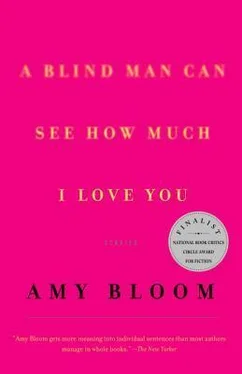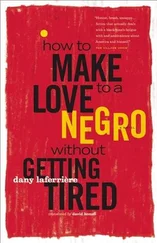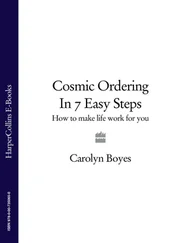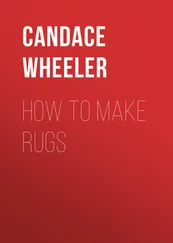“You drink a lot these days,” Julia says in the neutral voice she began cultivating twenty years ago, when it became clear that Lionel would never come back from Paris, would improve his French, graduate from L’Institut du Droit Comparé, and make his grown-up life anywhere but near her.
Lionel smiles. “It’s not your fault. Blame the genes, Ma. Junkie mother, alcoholic dad. You did your best.”
“It doesn’t interfere with your work?” It’s not clear even to Julia what she wants: Lionel unemployed and cadging loans from her, or drinking discreetly, so good at what he does that no one cares what happens after office hours.
“I am so good at my job. I am probably the best fucking maritime lawyer in France. If you kept up with French news, you’d see me in the papers sometimes. Good and good-looking. And modest.”
“I know you must be very good at your work. You can be proud of what you do. Pop would have been very proud of you.”
Lionel takes a quick swallow and offers the bottle to Julia, and if it were not so clear to her that he is mocking himself more than her, that he wishes to spare her the trouble of worrying by showing just how bad it already is, she would knock the bottle out of his hand.
Lionel says, “I know. And you? What are you doing lately that you take pride in?”
Julia answers as if it’s a pleasant question, the kind of fond interest one hopes one’s children will show.
“I finished another book of essays, the piano in jazz. It’s all right. It’ll probably sell dozens, like the last one. You make sure to buy a few. I’m still gardening, not that you can tell this time of year.”
“Buster says you’re seeing someone.”
“You have to watch out for Buster.” Julia turns away. “Well, ‘seeing.’ It’s Peter, my neighbor down the road. We like each other. His wife died three years ago.”
“No real obstacles, then.”
“Nope.”
“How old is he? White or black?”
“He’s a little older than me. White. You’ll meet him tomorrow. I didn’t want him to be alone. His daughter’s in Baltimore this year with her husband’s family.”
“That’s nice of you. Your first all-family Thanksgiving in twenty years, might as well have a few strangers to grease the wheels.”
“It is nice, and he’s only one person, and he is not a stranger to me or to Buster and Jewelle,” Julia says, and walks into the house, thinking that it’s too late in her personal day for talking to Lionel, that if she were driving she would have pulled off the road half an hour ago.
Julia starts cooking at six a.m. Early Thanksgiving morning is the only time she will have to herself. The rest of the day will be a joy, most likely, and so tiring that when Buster and Jewelle leave on Friday, right after Corinne is wrapped up in her safety seat belt and Jordan squirms around for one last good-bye and their new car crunches down the gravel driveway, Julia will lie down with a cup of tea and not get up until the next day, when she will say good-bye to Lionel and Ari and lie down again. She reads Jewelle’s detailed note and thinks, Poor Jewelle must be thirty-one, it’s probably time for her to have Thanksgiving in her own house. Julia had to wrestle the holiday out of her own mother’s hands; even as the woman lay dying she whispered directions for gravy and pumpkin pie, creating a chain of panicked, resentful command from bedroom to kitchen, with a daughter, a husband, and two sisters slicing and basting to beat back the inevitable. Julia managed to celebrate one whole independent Thanksgiving, with four other newly hatched adults, only to marry Lionel Senior the next summer and find the holiday permanently ensconced, like a small museum’s only Rodin, at her new mother-in-law’s house. Julia can sit now in her own kitchen, sixty years old with a dish towel in her hand, and hear Ruth Sampson saying to her, “My son is not cut from the same cloth as other people. You treat him right.”
After this last, unexpected hurrah, Julia will let go of Thanksgiving altogether. She’ll arrive at Jewelle’s house, or Jewelle’s mother’s house, at just the right time, and entertain the children, and bring her own excellent lemon meringue pies and extravagant flowers to match their tablecloths. If things go well, maybe she’ll bring Peter too. As Julia pictures Peter entering Buster’s front hall by her side, the two of them with bags of presents and a box of butter tarts, she cuts a wide white scoop through the end of her forefinger. Blood flows so fast it pools on the cutting board and drips onto the counter before she has even realized what the pain is.
“Ma.” Lionel is behind her with paper towels. He packs her finger until it’s the size of a dinner roll and pulls it up over her head. “You stay like that. Sit. And keep your hand up.”
“You’re up early. The Band-Aids are in my bathroom.” Her fingertip is throbbing like a heart, and Julia holds it aloft. It’s been a long time since anyone has told her to do anything.
Her bathrobe always lies at the foot of the bed. There is always a pale blue quilt, and both nightstands are covered with books and magazines and empty teacups. The room smells like her. Lionel takes the Band-Aids from under the sink: styling mousse, Neosporin ointment (which he also takes), aloe vera gel, Northern Lights shampoo for silver hair, two bottles of Pepto-Bismol, ajar of vitamin C, zinc lozenges, and a small plastic box of silver bobby pins.
When he comes down, Julia is holding her finger up, still pointing to God, in the most compliant, sweetly mocking way.
“I hear and obey,” she says.
“That’ll be the fucking day.”
Lionel slathers the antibiotic ointment over her finger, holding the flap of skin down, and wraps two Band-Aids around it. It must hurt like holy hell by now, but she doesn’t say so. With her good hand, Julia pats his knee.
“I was going to make coffee,” she says, “but I think you’ll have to.” And even after Jewelle and Buster get up for the kids’ breakfast and exclaim over the finger and Jewelle prepares to run the show, Lionel stays by Julia, changing the red bandages every few hours, mocking her every move, helping her with each dish and glass as if he were some fairy-tale combination of servant and prince.
At one o’clock, after Peter has called to say that he is too sick to come and everyone in the kitchen hears him coughing over the phone, they all go upstairs to change. They are not a dress-up family (another thing Jewelle likes, although she can hear her mother’s voice suggesting that if one so disdains the holiday’s traditions, why celebrate it at all), but the children are in such splendid once-a-year finery that it seems ungracious not to make an effort. Corinne wears a bronze organdy dress tied with a bronze satin sash, and ivory anklets and ivory Mary Janes. Julia knows this is nothing but nonsense and conspicuous consumption, but she loves the look of this little girl, right down to the twin bronze satin roses in her black hair, and she hopes she will remember it when Corinne comes to the dinner table ten years from now with a safety pin in her cheek or a leopard tattooed on her forehead. And Jordan is in his snappy fawn vest and white button-down shirt tucked into his navy blue pants, and an adorable navy-blue-and-white-striped bow tie. Lionel and Buster are deeply dapper; their father appreciated Italian silks and French cotton, took his boys to Brooks Brothers in good times and Filene’s Basement when necessary, and made buying a handsome tie as much a part of being a man as carrying a rubber or catching a ball, and they have both held on to that. Jewelle has the face and the figure to look good in almost everything, but Julia herself would not have chosen tight black satin pants, a turquoise silk camisole cut low, and a black satin jacket covered with bits of turquoise and silver, an unlikely mix of Santa Fe and disco fever. Julia comes downstairs in her usual holiday gray flannel pants and white silk shirt. She has turned her bathroom mirror, her hairbrushes, and her jewelry box over to Jewelle and Corinne.
Читать дальше












